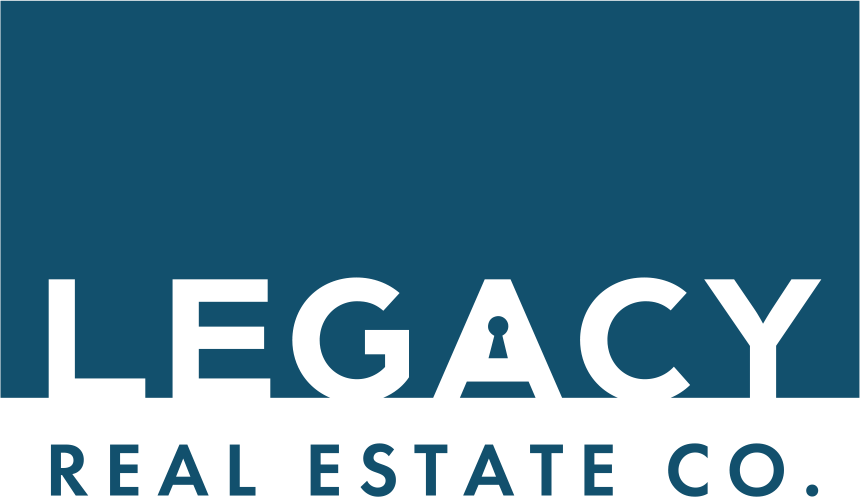Purchasing your first home is a significant milestone filled with excitement, anticipation, and many decisions. It’s a journey that combines financial planning, personal preferences, and a touch of learning along the way. While the process may seem complex at first, understanding the steps involved can turn it into a rewarding experience. With the right guidance, you’ll soon find yourself unlocking the door to your new home and a future filled with possibilities.

Understanding Your Budget and Financial Readiness
The first step toward homeownership is establishing a clear understanding of your financial readiness. Start by reviewing your monthly income, expenses, and debts to calculate how much you can afford. Financial experts suggest that your monthly housing expenses—including your mortgage, taxes, and insurance—should not exceed 28% of your gross monthly income. This ensures you can comfortably manage your payments while maintaining a stable financial outlook.
A crucial aspect of this stage is saving for upfront costs. The down payment is the most significant initial expense, typically ranging from 3% to 20% of the home’s purchase price, depending on the type of loan. Additional costs include closing expenses, which can range from 2% to 5% of the property’s value. By creating a realistic savings plan, you’ll be prepared to handle these costs without unnecessary stress.
Understanding mortgage options is equally important. Conventional loans, FHA loans, and VA loans each come with unique qualifications and benefits, so it’s wise to explore these options with a lender. Securing pre-approval not only defines your budget but also signals to sellers that you’re a serious buyer. With your financial foundation in place, you’ll be well-prepared to navigate the market confidently and focus on finding a home that aligns with your goals.
Researching the Market and Choosing the Right Location
Understanding the real estate market is key to making informed decisions as a first-time buyer. Begin by researching local housing trends, such as average prices, sales activity, and neighborhood popularity. This information provides context for what to expect and can guide your approach to timing and budgeting.
Choosing the right location is just as critical as selecting the home itself. Factors such as proximity to work, schools, amenities, and transportation options can significantly influence your quality of life. If you have children or plan to in the future, researching school districts is especially important. Other considerations include safety, neighborhood character, and long-term growth prospects, as these impact both your day-to-day living experience and the home’s future resale value.
Visiting neighborhoods at different times of the day offers insight into their dynamics, including traffic, noise levels, and community activity. Balance is essential during this process—your “must-haves” should be prioritized without overlooking the potential of properties that meet most of your criteria. For instance, a home in an up-and-coming area might offer long-term value even if it lacks certain features today.
Partnering with a real estate agent at this stage can streamline your search. Their knowledge of the market and access to data can help you refine your options and identify locations that align with your lifestyle and financial goals. With thorough research and a strategic approach, you’ll be positioned to find a home that checks the right boxes for both your present needs and future aspirations.
The Role of a Real Estate Agent
A skilled real estate agent is an indispensable ally for first-time homebuyers. Their expertise simplifies the buying process, helping you navigate each step with clarity and confidence. From market research to closing negotiations, an agent provides valuable insights and support that make the journey far less daunting.
One key advantage of working with an agent is their access to comprehensive property listings, including homes that may not yet be publicly available. They’ll help you narrow down options based on your budget, preferences, and priorities, saving you time and effort. Their deep knowledge of the local market allows them to identify opportunities you might overlook and guide you toward neighborhoods and properties that align with your goals.
A trusted agent also serves as your advocate during negotiations. Whether it’s securing a favorable price or requesting necessary repairs, their experience ensures that your interests are well-represented. They’ll handle communications with sellers and other parties, freeing you to focus on your decision-making without being bogged down by the details.
Finding the right agent begins with research. Recommendations from friends and family or online reviews can help identify candidates, but it’s important to meet with potential agents in person. A strong working relationship is built on trust, communication, and a shared vision for success. A reliable agent helps you make informed decisions and avoid home-buying pitfalls.
The Home Search Process: Touring and Evaluating Homes
Touring homes is one of the most exciting stages of the buying process, offering a glimpse of what your future might look like. However, it’s essential to approach each viewing with a critical eye and a structured plan. This ensures you evaluate properties effectively and avoid becoming overly swayed by cosmetic features.
Before visiting homes, create a checklist of your priorities. Include must-haves like the number of bedrooms, layout preferences, and outdoor space, alongside nice-to-haves such as modern appliances or a finished basement. Use this checklist during tours to keep your focus on the essentials and compare properties objectively.
As you walk through a home, assess its condition beyond surface-level appearances. Look for signs of wear and tear, such as cracks in walls, leaks, or outdated systems like plumbing and HVAC. These observations can help you estimate potential repair costs and weigh the property’s value against your budget. Additionally, consider how the layout and size will suit your lifestyle both now and in the future.
Taking photos or notes during tours can help you remember key details when reviewing your options later. After seeing several homes, the similarities and differences can blur together, so having a record is invaluable. If you’re unsure about specific aspects of a property, don’t hesitate to ask your agent for additional information or recommendations for further inspections.
Ultimately, no home is perfect, but with careful evaluation and an open mind, you’ll identify one that aligns closely with your vision and practical needs. Trust your instincts, stay patient, and rely on your agent’s expertise to guide you toward the right choice.
Making an Offer and Negotiating Terms
When you’ve found a home that feels right, the next step is crafting a compelling offer. This is a crucial moment where strategy and timing play a significant role in securing the property while protecting your interests. Working closely with your agent, you’ll determine an offer price based on comparable sales, market conditions, and the home’s condition.
Beyond the price, the terms of your offer can also influence its appeal. Flexible closing dates, earnest money deposits, and contingencies such as financing or inspections are all factors sellers consider. A well-structured offer strikes a balance between meeting the seller’s expectations and maintaining safeguards for you as the buyer.
Once your offer is submitted, be prepared for negotiations. Sellers may counter with adjustments to the price or terms, and it’s essential to approach these discussions with patience and flexibility. Your agent will act as a mediator, using their experience to advocate for your priorities while finding common ground with the seller.
The goal of this phase is to arrive at a mutually agreeable agreement that satisfies both parties. Staying focused on your objectives and trusting your agent’s guidance can help you navigate this step successfully. Once the terms are finalized, the transaction moves toward closing, bringing you closer to homeownership and the beginning of an exciting new chapter.
Closing the Deal and Preparing to Move In
Closing day marks the final step in the home-buying process, where ownership officially transfers to you. This phase involves several important tasks, including inspections, appraisals, and signing the necessary paperwork. Each step ensures that the property meets your expectations and that the transaction proceeds smoothly.
Home inspections are a critical part of closing. These evaluations identify potential issues with the property, from structural concerns to outdated systems. Depending on the findings, you may negotiate repairs with the seller or adjust the terms of the sale. An appraisal conducted by the lender confirms the home’s market value to ensure it aligns with the agreed-upon price.
During this period, your lender will finalize the mortgage details and require you to provide any outstanding documentation. Carefully review your closing disclosure, which outlines the final costs, loan terms, and payment schedule. Understanding these details ensures there are no surprises on closing day.
On the day of closing, you’ll sign the necessary documents and pay any remaining costs. Once completed, you’ll receive the keys to your new home. From here, it’s time to celebrate and prepare for your move. Tasks like scheduling movers, transferring utilities, and updating your address can help you settle in quickly and start making your house feel like home.
Ready to Begin Your Home Buying Journey?
Buying your first home is a significant accomplishment and a step toward creating a space that is uniquely yours. If you’re ready to start the process, contact us today to explore your options and take the next steps. With professional guidance and support, finding your perfect home is closer than you think.
